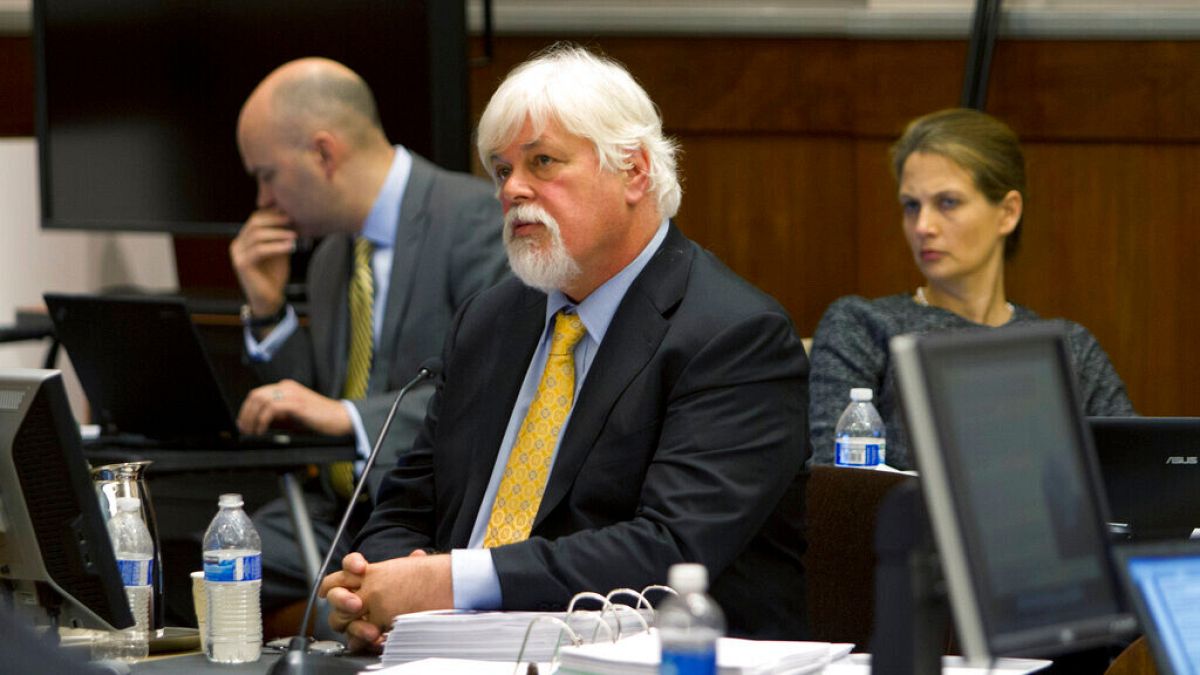French asylum seeks for Sea Shepherd founder, Paul Watson in order to avoid facing up to 15 years of prison in Japan. A court in Greenland extended Watson’s custody until November 13th, as Denmark considers an extradition request from Japan. Watson is accused of ordering explosives to be thrown at a Japanese whaling vessel, obstructing official duties. He has sought asylum in France with the support of activists, celebrities, and EU lawmakers, highlighting the importance of his case for environmental advocacy and human rights. Watson, a former Greenpeace member, founded Sea Shepherd to take a more aggressive approach to marine conservation.
Watson’s request for political asylum in France comes as Denmark deliberates on whether to extradite him to Japan. Supporters, including celebrities and EU lawmakers, have protested against his detention, arguing that it is a politically motivated attempt to sanitize Japan’s whaling practices. Watson, a 73-year-old Canadian-American citizen, is the former head of the Sea Shepherd Conservation Society. He is accused by the Japanese coast guard of obstructing their duties by allegedly ordering the captain of his ship to throw explosives at a Japanese whaling vessel. Watson’s arrest has sparked international outrage and support for his cause.
Protests have erupted in France and Belgium to demand Watson’s release, while celebrities like Pierce Brosnan have taken to social media to support the activist. Watson’s asylum request to France, pending a response from President Emmanuel Macron, is seen as a symbolic move to secure his release. The Danish government, which does not have an extradition treaty with Japan, has yet to make a decision on whether to send Watson to face trial in Japan. The Sea Shepherd founder faces up to 15 years in prison if extradited.
Watson’s departure from Greenpeace in 1977 led to the founding of Sea Shepherd, known for its direct action tactics to protect marine animals. The organization has waged campaigns against whaling vessels, including high-seas confrontations that led to the reality TV show “Whale Wars”. Watson’s supporters argue that his arrest is an attempt to undermine his efforts to expose and oppose Japan’s whaling practices. The case has drawn attention to the intersection of environmental activism and international politics.
In conclusion, Paul Watson’s request for political asylum in France has highlighted the challenges faced by marine conservation activists who engage in direct action to protect marine animals. The international support for Watson underscores the global interest in environmental issues and the significance of his case for the future of marine conservation. The decision on whether he will be extradited to Japan remains pending, with supporters and activists continuing to advocate for his release. Watson’s activism and leadership in marine conservation have made him a polarizing figure in the environmental movement, sparking debate on the tactics used to protect marine life and the role of governments in supporting environmental advocacy.











